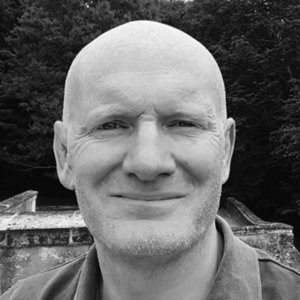AoH Book Club: Gavin Mortimer on The Phoney Major
Gavin, The Phoney Major changed the conversation when it comes to the founding of the SAS in 1941. How was the book received?
I believe it wasn’t very well received in some quarters; not because what I wrote was untrue but rather I should have kept quiet and stuck to the party line: about Stirling being a guerrilla genius etc. In the two and a half years since the book was published I haven’t received any correspondence refuting my claim that Stirling was more Phoney Major than Phantom Major.
Among the general public the feedback has been very positive. Initially, there were some who thought it was going to be yet another ‘Woke’ reappraisal of a Great British hero, but as anyone who knows me will tell you, I’m not Woke. Stirling was physically brave, audacious and imaginative, a man who had a ‘good war’, as they said. Post-war, however, he reinvented himself and the history of the SAS at the expense of others, notably Paddy Mayne, Bill Fraser, Bill Stirling and the Long Range Desert Group. I’ve put straight the record that Stirling deviously bent out of shape.
You’ve written about the SAS for many years – was it that knowledge that led you to re-examine the founding of the SAS, or was it during the writing at the book that you questioned David Stirling’s role?
I was set on the ‘road to discovery’ in 2014 when I began researching my book about the Long Range Desert Group (The Men who made the SAS). One of the LRDG veterans I interviewed was Lofty Carr, who joined the LRDG in January 1941 and was one of the unit’s most accomplished navigators. Lofty was scathing of David Stirling, and while he respected the courage and audacity of the SAS in the desert days, he said there was a slipshod amateurism about them. This was attributable to Stirling. I have heard a similar view from the son of a well-known LRDG officer. When I began digging deep into the LRDG war diary and operational reports (housed in the national archive) I came across numerous references to the frustration and irritation they felt towards Stirling.
Bill Stirling is the founder in your view – he was later sacked just before D-Day for questioning plans for the SAS in the days leading up to the 6th June. How damaging was this sacking to his reputation?
Not very. In fact, it showed he was a man of strong character and principle, one prepared to sacrifice his own military career for the sake of his Regiment. And, of course, the sacrifice was not in vain. The operational order for the SAS Brigade was changed and they were deployed strategically (deep behind the lines in France) and not tactically, just behind the beachhead, which would have been, in the words of Mike Sadler, ‘suicidal’.
What was David Stirling’s relationship with Paddy Mayne, his successor in command of the SAS?
This relationship is fundamental to the Phoney Major. Stirling was deeply envious of Mayne, who was the man he longed to be. Mayne didn’t take Stirling seriously as a guerrilla fighter. He was inept, making blunder after blunder. As Bob Bennett – one of the SAS Originals – remarked: ‘The funny thing was that all the operations, the big success ones were Paddy’s, and David, as much as he tried, couldn’t get those planes.’
In the Phoney Major I write: ‘Bill Stirling was the intellectual force behind the Special Air Service, and Paddy Mayne the physical force. David Stirling was its salesman.’ In the ten years after the war, Stirling went into self-imposed exile in Rhodesia and had nothing to do with the SAS; Mayne attended all the reunions and was very much the premier figure. But then Mayne was killed in a car crash in 1955, and with indecent haste Stirling began plotting his reinvention as the genius behind the SAS. This came to fruition with the publication in 1958 of The Phantom Major, a book that is as much fiction as it is fact, aggrandising Stirling and diminishing Mayne. This false narrative continues to this day as witnessed in the recent BBC series Rogue Heroes, which has its moments, but gets Stirling and Mayne hopelessly wrong.
This biography of Stirling is very entertaining, particularly when looking at the 1970s. What was Great Britain 75?
In the 1970s there was a genuine concern in some conservative quarters that the communists were going to take control of Britain. 1974 was a chaotic year in the UK with two general elections (which led to the return of Harold Wilson’s Labour government), the three-day week and the oil embargo crisis. In forming GB 75, Stirling envisaged a ‘private army’ ready to intervene in the event the communists did attempt a coup d’etat. It was privately financed with one contributor being the well known arms dealer Geoffrey Edwards
Are his activities in the ‘70s not particularly sinister, and he was really more of a Colonel Blimp type character?
I’m sure there were a few people who joined GB75 with sinister motives – i.e far-right – but Stirling never intended to initiate armed action himself. It was another of his hare-brained schemes, not very well thought out (hence the rapid demise of GB75), and actually a rather sad illustration of the man he had become. This lonely man without any close family trying to find a purpose and an identify for himself as old age beckoned.
The Iranian embassy siege of 1980 was a godsend for Stirling because it thrust the SAS into the spotlight and he revelled in the attention. The last decade of his life – he died in 1990 – was probably his happiest. He had fame and recognition and respect, all of which he had craved in WW2 but had been denied by his own shortcomings and the exploits of Paddy Mayne, the man who cast a shadow over Stirling’s life more than any other.
If you were to have a new edition published, is there anything you would change, add or remove?
Good question! I might explore more David Stirling’s mental state. I wonder if he wasn’t what was once called a manic depressive and is now called bi-polar. He seems to tick the boxes. On the one hand people recall his extraordinary energy, risk-taking, self-importance and a brain full of ideas, but others described a man prone to feelings of despair, emptiness and worthlessness, someone who could barely get out of bed on somee days.
Recently we’ve seen videos on social media of you visiting places near your home in Burgundy where the SAS was causing trouble for the Germans – how disruptive were they in occupied France?
Overall, the SAS Brigade were estimated to have killed 7,733 German soldiers during operations in France. Some 740 motorised vehicles were destroyed, as were seven trains, 89 wagons and 29 locomotives. Thirty three further trains were derailed and railway lines were cut on 164 occasions. Furthermore, they called in 400 air strikes on German targets and carried out countless valuable reconnaissance patrols for the advancing Allied forces. Perhaps, their most valuable contribution was the training and confidence they gave to the many Maquis groups with whom they worked. For example, in the Morvan (close to where I live), the rugged region in central France where A Sqn, 1SAS operated from June 6 to Sept 6, the two main Maquis numbered 37 and 25 members in May 1944. By the end of August their numbers were 800 and 1,200. The SAS, by their actions and simply their presence, inspired the French people.
What are you working on at the moment?
Nothing to do with the SAS. I’ve laid my pen to rest as far as they are concerned. I probably won’t write another book about the Second World War because nearly all the combatants have passed into history. What I loved, and what was such a privilege, was spending company in the time of the Greatest Generation.
Gavin Mortimer is the author of David Stirling: The Phoney Major. You can listen to Gavin on the Aspects of History Podcast.







